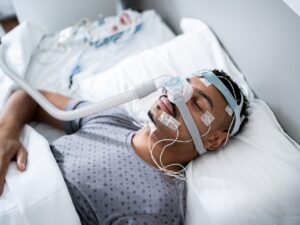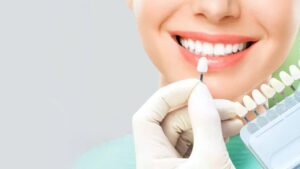You may be surprised to learn that Dr. Van Orman asks questions about your sleep habits, but that’s because he has advanced training in treating sleep apnea. Sleep apnea is a common condition, and experts estimate that about 18 million people in the United States have it.
There are many Americans who see their dentist more often than they see their primary care physician, and because both the symptoms and treatment of sleep apnea can be related to oral health, it makes sense for dentists to discuss the condition with patients. In some instances, Dr. Van Orman is the first health care provider to suspect sleep apnea.
Common oral symptoms of sleep apnea
Screening patients for sleep apnea is an increasingly common practice in dental offices, and the Van Orman Dental Group protects patients by providing this screening. In the course of giving your medical history, you’re asked questions regarding your sleeping habits, and during your routine exams, Dr. Van Orman looks for signs of the condition.
One of the early symptoms of apnea is tooth-grinding, which is also called bruxism. Other common symptoms that Dr. Orman is more likely to notice than another health care provider may be is inflamed or receding gums, or a sudden increase in the number of cavities you have.
Next steps
Once Dr. Van Orman recognizes symptoms of apnea, he’ll ask more specific questions related to your sleep. You may be asked to complete a detailed sleep questionnaire.
Dr. Van Orman works with you and a physician to diagnose apnea. You may be asked to use a portable sleep study device at home to help Dr. Van Orman and the collaborating physician make a diagnosis.
Two types of sleep apnea
There are two basic types of sleep apnea: obstructive apnea and central sleep apnea (CSA). In OSA, something, usually the soft tissue at the back of your throat, obstructs your airway. With CSA, your brain doesn’t send the proper signals to your body to breath. In both cases, you suffer moments of interrupted breathing throughout the night which prevent you from getting proper rest.
OSA is by far the more common type of apnea. There are four ways that sleep apnea is usually treated:
- Adjusting how you sleep
- A continuous positive airway pressure (CPAP) machine
- An oral appliance
- Surgery
Depending on several factors, you may be able to use an oral appliance to treat apnea. Such a device is custom made to fit your mouth and can help keep your airway open, allowing you to sleep comfortably.
Sleep apnea is a serious medical condition which can be life threatening. Because Dr. Van Orman has advanced training in treating apnea and works closely with a collaborating physician, you can be sure you’re getting the most appropriate treatment when you’re under his care.
If you suspect you may have sleep apnea, book an appointment online or by phone at the Van Orman Dental Group. Dr. Van Orman is happy to answer your questions and provide a thorough evaluation.






